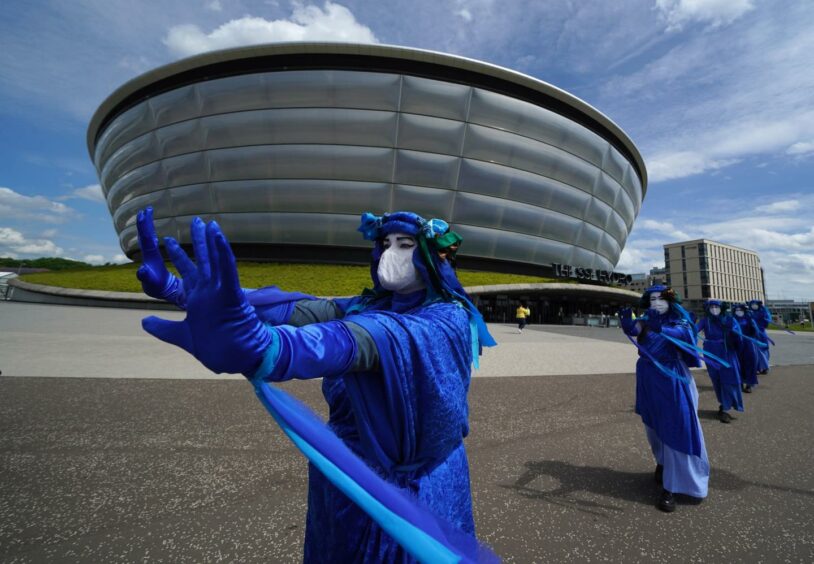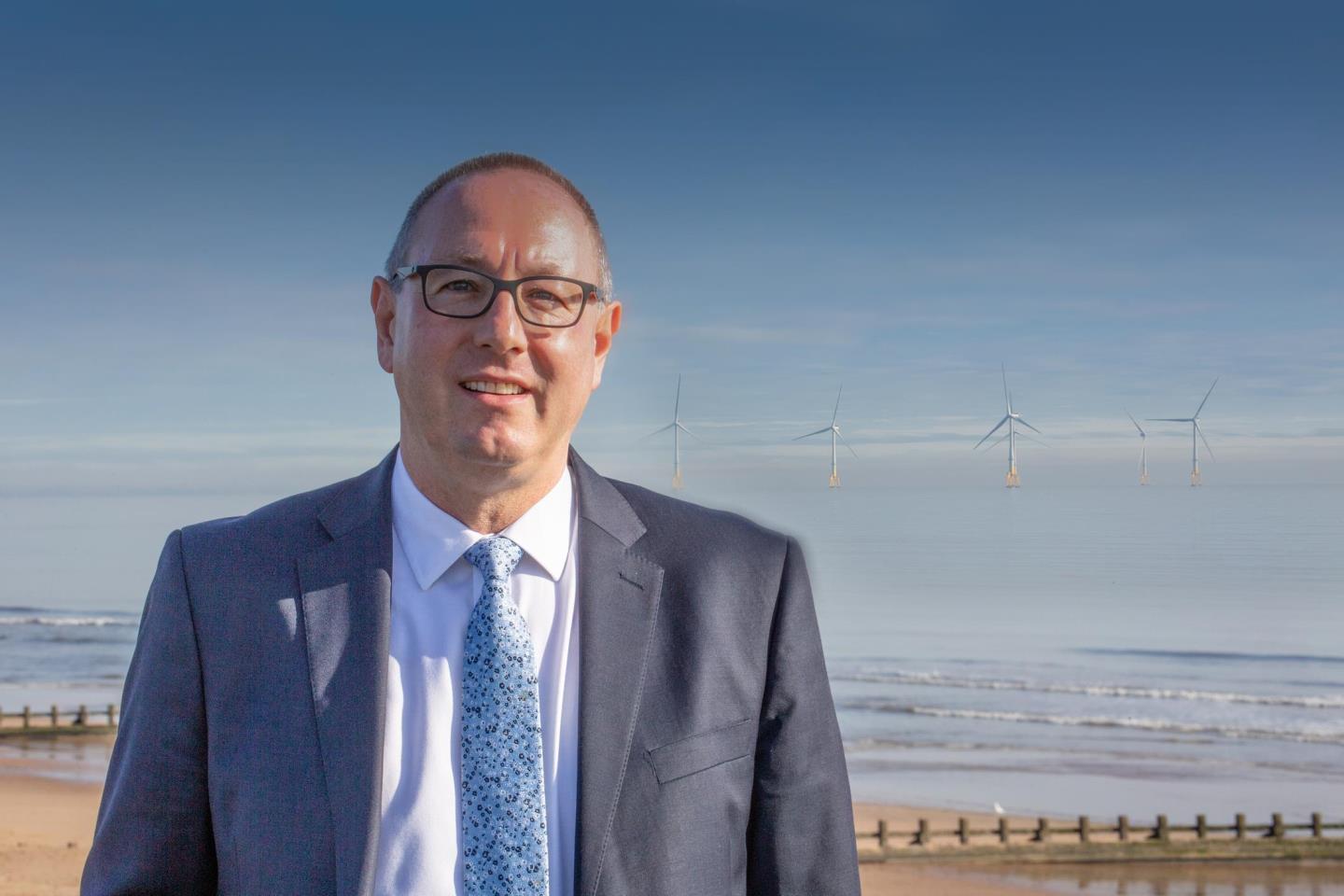 © PA
© PA All eyes are on Glasgow as the world’s leaders prepare to convene for COP26, and the call to action has never been stronger as the climate crisis rolls on.
“This is happening on our watch”, says Paul de Leeuw, director of Robert Gordon University’s Energy Transition Institute.
“We are the first generation to see the impact of climate change, and the last generation to be able to do something about it”.
Unlike more recent COPs, this particular Conference of the Parties is the spiritual successor to the landmark COP21 in 2015, when the Paris Climate Agreement was reached.
Those accords put a mandate on countries to return every five years with increasingly ambitious targets to ensure the world mitigates the impacts of climate change.
Professor de Leeuw said that means a “laser focus” is on Glasgow and what can be achieved at COP26, having been delayed from 2020 due to Covid.
“The combination of the legal requirement to come back, but also the moral obligation to do something about it, is critical and I think society expects us to do something.
“It is absolutely vital that this is a success.”
What might be achieved at the conference? It’s an ambitious agenda, but there’s three big targets to look out for, according to the professor.
The first is reaching agreements on individual countries’ National Determined Contributions (NDC), legally binding targets on how they intend to reduce emissions by 2030.
The second is a consensus on how the world can, as a whole, reach net zero by 2050, and the other big expectation is a pledge of at least $100billion a year to support developing countries to reduce their own emissions.
PRESSURE COOKER
Unprecedented pressure has been placed on governments, on oil and gas, as well as other sectors, amid the climate crisis.
The UN’s Intergovernmental Panel on Climate Change (IPCC) paper in August sounded a “code red” warning that the impact of humanity on the planet, particularly its use of fossil fuels, means global warming is on course to exceed 1.5C over the next two decades.
This, combined with extreme weather, be it flooding in Germany, heatwaves in Canada, fires across Australia or rising sea levels in South East Asia, means society won’t accept anything less than decisive action.
Various definitions of a “Just Transition” have been dispensed in the lead up to COP, many citing the need to ensure that the workforce is not left behind as the gradual shift away from fossil fuels takes place.
That’s a key task of industry and government: Scottish trade minister Ivan McKee told Offshore Europe in September that he wants to ensure that decarbonisation does not have the same impact deindustrialisation had on Scotland in the 70s and 80s.
The climate problem is a global one, and while the UK is aiming to be part of the solution, the devastating impact it can have on communities around the world must be recognised.
Adam Price is a rice geneticist at Aberdeen University and a member of the Aberdeen Climate Action group.
He said: “That sense of a ‘just transition’…of course the people who are most likely to be most badly affected are not people in Britain, they’re overseas.
“Through my work I carry out experiments on rice in overseas countries, I’ve done a lot of experiments in Bangladesh and I would say I have good friends in Bangladesh.
“According to that IPCC report scenario, more than a third of Bangladesh will be underwater as sea levels rise by 2090. That will be 30 million people who have no home because of the oil and the coal that we used.
“I feel we have an obligation to make sure that doesn’t happen.”
DOMESTIC PRODUCTION
The COP conference comes as the UK North Sea, particularly the fate of the Cambo oilfield, has become a key battleground for climate campaigners.
It also comes as gas prices have skyrocketed, which industry body Oil and Gas UK has argued underscores the need for domestic production, particularly for a country which consumes far more fossil fuels than it produces.
Professor de Leeuw said pressure on sectors and government is a good thing, but it needs to be part of an informed debate.
“Fundamentally, the industry is already heading towards a smaller, lower carbon, lower intensity element. But as long as we consume more than we produce, the rest will come from imports.
“This is where we need a nuanced and informed debate because if we can produce it with a lower-carbon footprint here, then we should do that, rather than shift the problem somewhere else and import it with a higher carbon footprint.”
The example of world leaders like the US, UK and China, will make a difference here, Prof de Leeuw says (the latter country recently announced it would cease financing of coal plants overseas, but remains a huge burner of the most polluting form of power generation).
The UK, with roughly 1% of the world’s population, oil and gas production and emissions, will be a “nice microcosm” setting out to the world how it can be done.
We have ambitions to upscale offshore wind, hydrogen and carbon capture and storage, embedded within documents like the 10-point plan.
While it is a transition – “it won’t all happen in November” – the UK now needs make sure that high aspirations are made into reality.
Professor de Leeuw added: “We have a line of sight of what we need to do to decarbonise the UK.
“It’s not a question around needing more plans, what we need is to turn plans into action and activity and, again, that’s where we can lead.”

